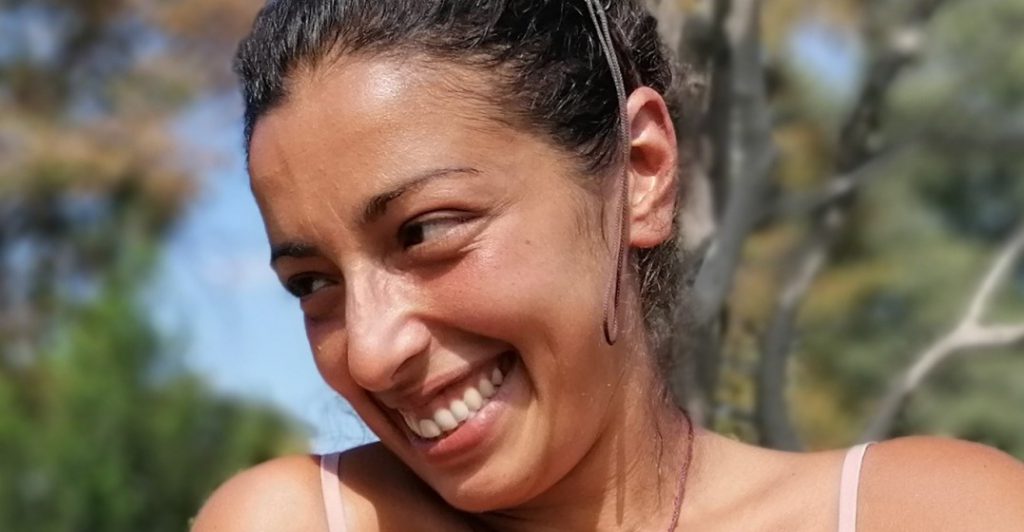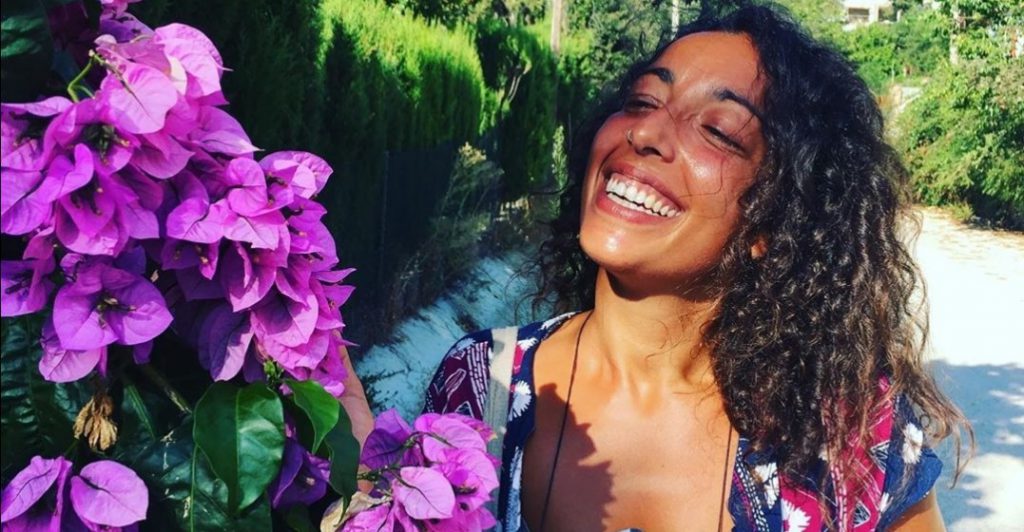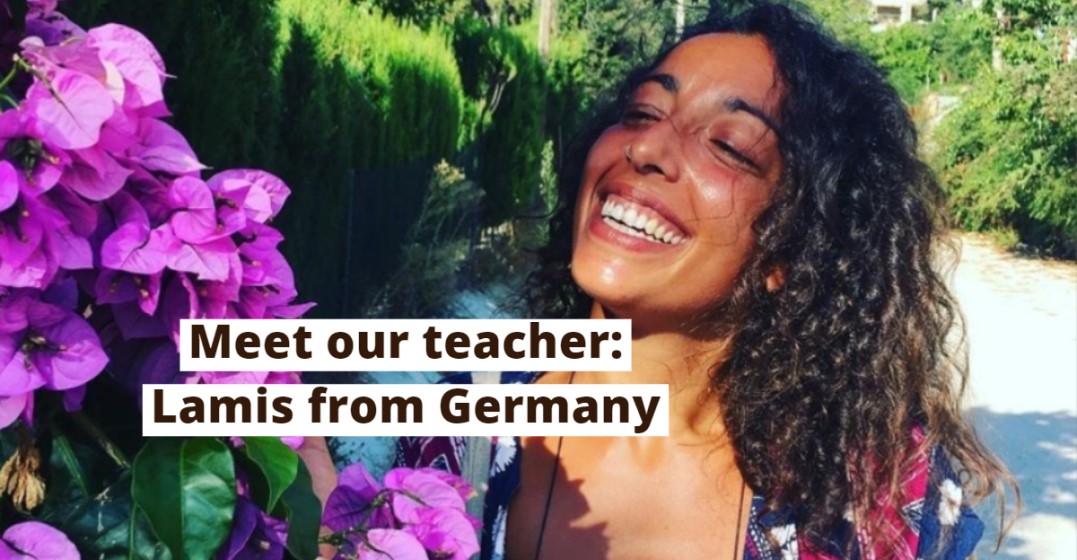Meet Lamis: “I love the flexibility”
Published on December 18, 2019 / Updated on January 9, 2024
At the heart of Lingoda are our lessons and our brilliant teachers. In today’s ‘meet the teacher’ post, Lamis talks all things German and travelling, as well as giving you those all important tips to be able to learn a language quickly.
I was born in Darmstadt, Germany and grew up with two languages, German and Arabic, my parents’ mother tongue. German ended up being my native language, as I went to school in Germany, had German friends and studied in German. I read, think and dream in German and correct orthography has always been very important to me. Languages quickly became my favourite subject in school. But, back then, no career counsellor would paint a great picture if you wanted to work with languages.
First, I studied medicine, but after a while, I realised that I enjoyed working with people – not necessarily in a medical context, though. Also, I wanted to have a better work-life-balance in the future. As many firstborn children, I’m good at passing on knowledge. So I changed my major to education and worked in several jobs after that in translation and integration work with refugees and immigrants, until I found out about language teaching. It was never really on my radar for a career, but it turned out to be ideal for me. I’m able to empathise with the students‘ challenges as I learned another language as an adult as well. I get to learn something new about cultures and different nationalities and I really enjoy seeing students understanding and developing.

From when I was a baby, I went to Jordan with my family every year for summer holidays. This travel destination, while being exotic enough for many Germans, led to a deep interest for other cultures and a passion to see the rest of the world.
When I got older, I travelled to Israel, a plan I had for a long time and through Europe, Spain being the best option to live with my love for the sun and the outdoor lifestyle. I lived in Tenerife, Ibiza and Barcelona and visited other parts of Spain, always trying to speak the language and to connect to locals.
Now, Latin America is my next stop – after four years of travelling in Spain, my language skills are good enough.
I will keep my base in Europe but when it’s time again to travel in the future, I want to explore India and some countries in Africa, as well as Japan.
When I read something interesting in the morning, I try to incorporate that into my classes which often contain current topics from culture, science and environment, interesting and important issues in our lives nowadays. When students are interested, they learn better.
Usually, I work for four hours, leaving gaps in between to recharge and be fully focused in each class, because each class is usually a new set of students, each with their own abilities and challenges when it comes to learning.
Often, students share the structure and grammar of their native language so we can compare it to German. We find similarities to ease the learning process or differences to show the students why they are struggling.
After work, I send my students the feedback – what they did great, what they have to work on, so that they as well as other teachers can keep track of their progress.
I love the flexibility of work, the broad variety of topics and students’ nationalities. Even though I’ve been working for Lingoda quite a while now and know the content, the classes are so different every time, because every student has a unique view on current issues and their own experiences.

Recently, I started learning Japanese and it is true – the more languages you speak, the easier it gets. Arabic contains different letters than the Latin alphabet, so being used to that, Japanese letters and words stick in my memory.
Apart from that, speaking another language enriches every trip, every encounter with people, it intensifies the comfort and raises the confidence to communicate what you want.
I learned Spanish in school when I was 16, but it was only after 15 years without speaking the language, that the kids I taught in an Ibizan academy, „forced“ me to revise my grammar and learn vocabulary to make them trust me and learn with me. This type of language exchange showed me that learning is amazing and there is always a way to reach a student.
First of all, it is a great exercise for the brain. Our memory needs it. When we meet people travelling to their country or vice versa and have a language in common, we learn more. Learning keeps us fit and our brain „young“. It’s basically a virtuous circle.
When living abroad, misunderstandings at work, in private life and halts in the integration make it harder to feel comfortable wherever you go, if you don’t speak the host country’s language. I personally feel more confident to travel to Latin America, now that I’ve practised Spanish.
Even though it’s complex, the German language is beautiful. It has its own humour and the harshness of the pronunciation is often over-emphasized, because words are long and full of consonants. The cases and articles are annoying, that is also the case for a native speaker as well as a language student. But if you get past that obstacle, it’s half the rent (a German saying).
When visiting Germany, you get to see beautiful nature and a lot of history everywhere. Tourists say that German people are open-minded and often speak English, which is perfect to travel around or to get started when moving to a German speaking country.
The best way to learn a language, especially as an adult, is to immerse – you are confronted with the language when shopping, walking in the streets and working ideally with native speakers.
German economy attracts a lot of professionals who can work and live completely in English. Still, most of these professionals start to learn the host language to feel integrated and part of the society they live in.
If you don’t work in the target language, try to let the language into your private life. As adults, we tend to translate from another language, when we should be like children and start from the beginning. If you have children, read to them in German, you will benefit from it and get the first steps done towards your goal.
If you are interested in some shows and films, watch them with subtitles. When you are more advanced, you can read articles or watch vlogs on different levels and tell your German-speaking coworkers and friends about it, in case you don’t know what to talk about.
You need to find time and insist on speaking the target language with as many people as possible. This will need discipline and breaking down the big goal into smaller ones. Success will keep you motivated more likely, if no extrinsic motivation pushes you.
Remember the virtuous circle? Do it – there is no disadvantage. Your integration speeds up, a good medicine against homesickness, you will learn new things, which is, as mentioned before, good for your brain and you get to enjoy the empowerment that comes from language learning.
